China censors discussion on WHO's assessment of pandemic
Despite state media dispelling the misunderstanding that China's zero-Covid policy would become a long-lasting basic national policy, Zaobao correspondent Wong Siew Fong notes that the Chinese people are still wary of how much longer the strict measures will persist, especially amid the sudden censorship of specific search terms related to the end of the pandemic on social media. Is there an end in sight for the strict anti-epidemic measures?
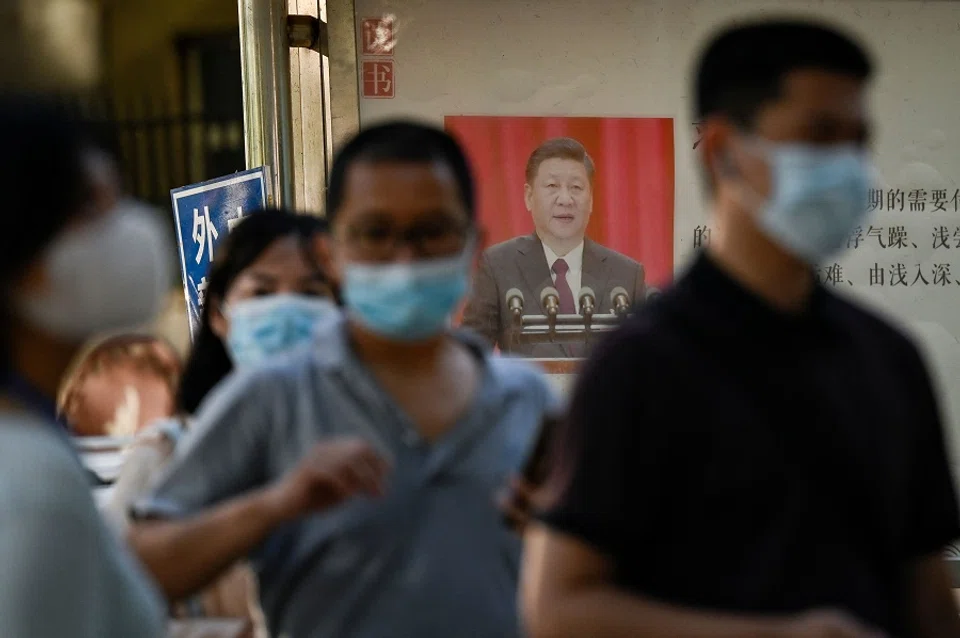
The question of how long China's "dynamic zero-Covid" policy will last has thrown Chinese netizens into a state of panic.
Recently, a statement claiming that officials will maintain the country's dynamic zero-Covid policy as a long-term basic national policy has made rounds on Chinese social media. Chinese netizens became alarmed when some local media and healthcare industry we-media outlets, including local health commissions and disease control and prevention centres, reposted the statement.
To dispel the rumours, on 14 September, Fengwen (风闻), a website managed by leftist online media Guancha Syndicate (观察者网) published an article which was reposted by state media such as Xinhua News Agency, China News Service and China Daily. The article refuted the statement and criticised the "malicious" rumour-mongers spreading the misinformation.
Not a first to cause panic
What happens when China's dynamic zero-Covid policy is turned into a "basic national policy"? Why must state media collectively dispel the rumour?
If the dynamic zero-Covid policy becomes a basic national policy, it is expected to be in place for at least a few decades.
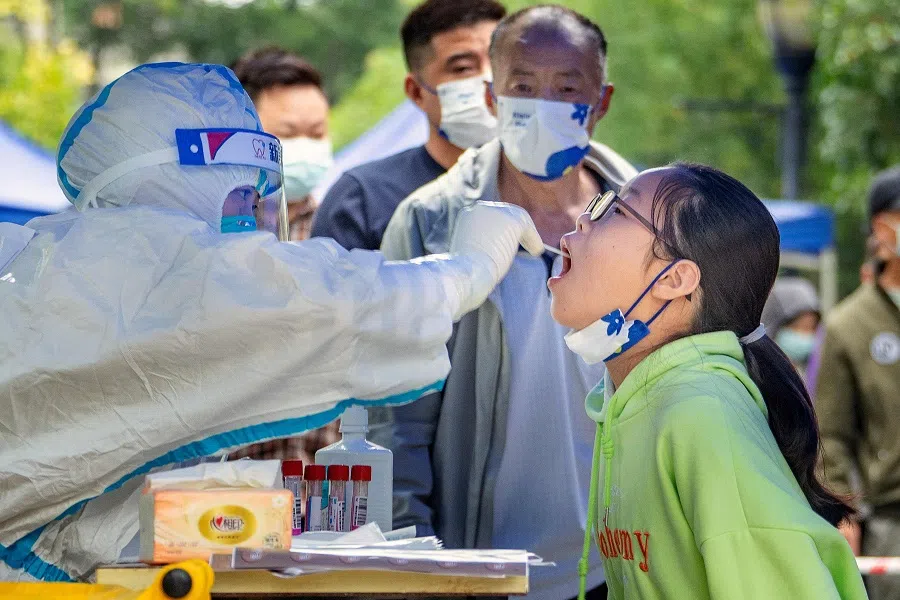
Basic national policies refer to the country's major policies that are indisputable and implemented over a long period of time. For example, reform and opening up, as well as rejuvenating the nation by relying on science and education, are basic national policies that China has adhered to for decades. If the dynamic zero-Covid policy becomes a basic national policy, it is expected to be in place for at least a few decades.
The misunderstanding reminds me of another erroneous report made in June this year when Beijing Daily quoted Beijing party secretary Cai Qi's statement at the Beijing party congress, saying that the capital would resolutely and unremittingly commit itself to the normalising of pandemic prevention controls over "the next five years". The remark raised concerns about a possible long-term implementation of the zero-Covid policy in Beijing, sparking uproar on the Chinese internet.
Beijing Daily's chief Zhao Jingyun clarified that the words "the next five years" were not in the party congress report and were mistakenly included by a reporter.
At a time when people are already under immense pressure and on the verge of breaking down, one can only imagine the repercussions of this rumour.
Censored discussion on future of pandemic
The rumour that China's dynamic zero-Covid policy would become a basic national policy is more serious than the erroneous report made in June - the former implies that the country's strict anti-Covid policy would not be relaxed and would extend far beyond "the next five years".
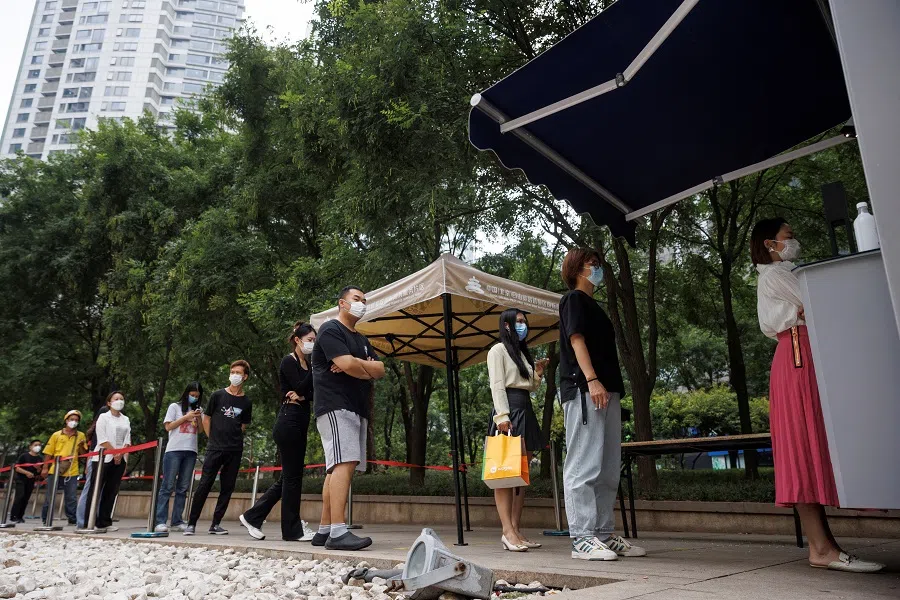
The Covid-19 pandemic has already dealt a big blow to China's economy and people's livelihoods, convenience, and employment over the past two years. At a time when people are already under immense pressure and on the verge of breaking down, one can only imagine the repercussions of this rumour.
By jumping in to put out the fire, Chinese media platforms are sending the message that the dynamic zero-Covid policy is an anti-Covid measure taken under the unique circumstances of a pandemic; it is neither a long-term national policy nor an unchanging major policy direction. This allows some manoeuvring space for China to adjust its anti-epidemic measures in the future.
Then would this mean that the pandemic policy can be relaxed? It may not be as straightforward.
And even as the Chinese media was quelling rumours about the basic national policy, at a regular press briefing on 14 September, World Health Organization (WHO) Director-General Tedros Adhanom Ghebreyesus stated that the end of the pandemic "is in sight".
"... now, the Chinese are the only ones in the world still seriously fighting the virus..." - Chinese netizen
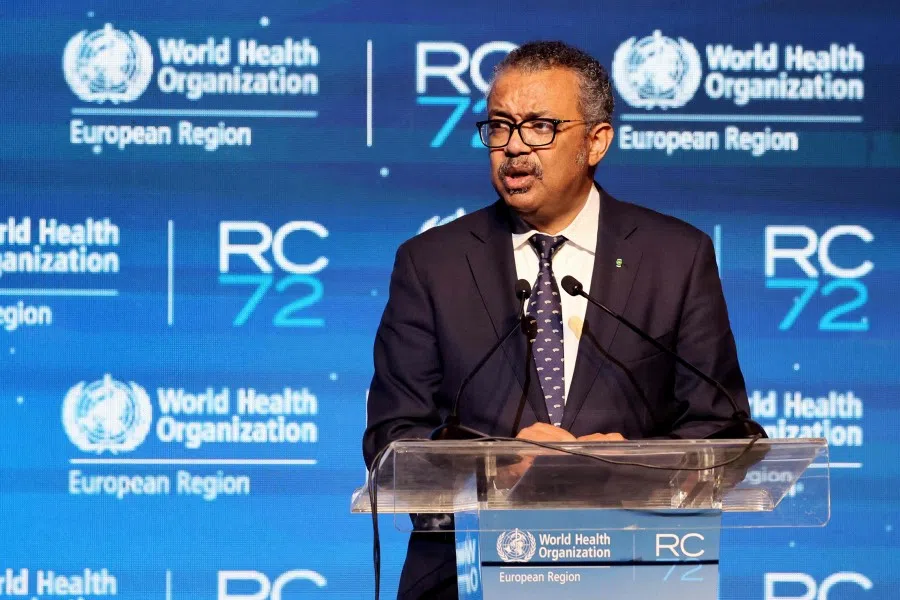
The news was circulated on Chinese social media the following day, and figures from the data platform Enlightent show that "WHO says pandemic end in sight" became a trending topic on Weibo on the morning of 15 September, with over 70,000 searches.
However, by evening, the search term was blocked on Weibo. When I searched on 16 September, the links for this term were disabled - the only searchable term related to the news was "WHO calls on countries to continue fighting the pandemic".
Tedros's comment drew polarised reactions online. Optimistic netizens felt a glimmer of light; others took the opportunity to express dissatisfaction with China's pandemic policy, sarcastically commenting that Tedros was speaking directly to China and that "now, the Chinese are the only ones in the world still seriously fighting the virus". And with the censorship of the WHO news on Weibo, Chinese netizens surmised, "Now we know the government's real intentions."
... the authorities' focus is not on paving the way for policy adjustment, but on preventing the issue from becoming a hot topic during the session.
New narrative on pandemic
Notably, Tedros's comments were mostly spread on we-media. Even after the term was blocked on Weibo, on 16 September several we-media continued to share this news, with most headlines still about the end being in sight or the pandemic ending soon, which indirectly reflects social trends and the people's longing for an end to the strict pandemic measures. On the other hand, the search term being censored on Weibo shows that the authorities are wary about the people's call to relax the pandemic policy.
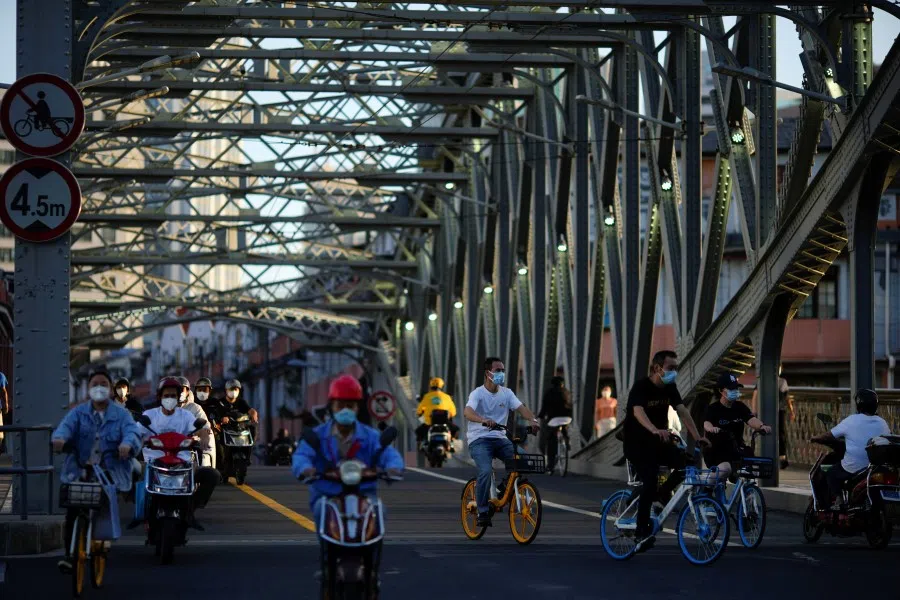
With a month to go before the Chinese Communist Party's 20th Party Congress, whether quelling rumours or censoring searches, the authorities' focus is not on paving the way for policy adjustment, but on preventing the issue from becoming a hot topic during the session.
Right now, all eyes are on whether the 20th Party Congress will put forth a new narrative on the pandemic and create an opening for China to ease its pandemic policy. Most analyses reveal that the earliest China might do so is next spring. Whether this hope will be fulfilled amid the authorities' unclear signals, one can only say that the end is in sight for now, but we still need to keep fighting the pandemic.





